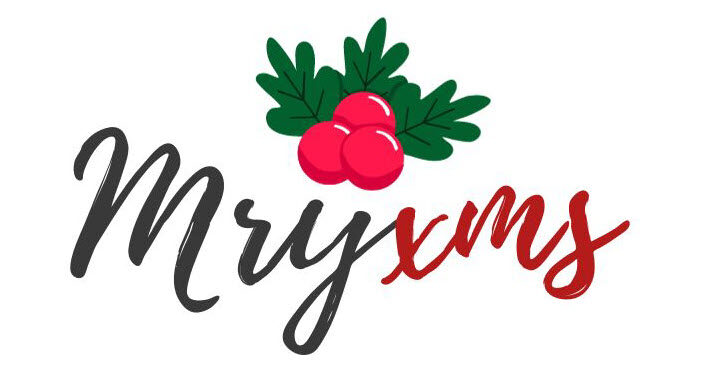Christmas is a magical time filled with joy, love, and giving. But have you ever wondered how the tradition of gift-giving began? It turns out, this beloved custom has a fascinating history that dates back centuries. From ancient Roman customs to the influence of Saint Nicholas, the origin of Christmas gift-giving is an intriguing tale that has shaped the way we celebrate this special holiday. Let’s take a journey through time to uncover the roots of this heartwarming tradition and discover how it has evolved into the cherished practice we know today.
The Origin of Christmas Gift-Giving
Christmas is a time of joy, love, and giving, where friends and loved ones exchange presents as a symbol of their affection. But have you ever wondered how this tradition of gift-giving started? In this article, we will explore the origins of Christmas gift-giving, tracing it back to its pagan roots and the influence of Christianity. So, grab a cup of hot cocoa and join us on this fascinating journey!
Pagan Roots
Long before the Christian era, winter was a time of celebration and festivities among various pagan cultures. These ancient winter festivals played a significant role in shaping the traditions we associate with Christmas today.
Ancient Winter Festivals
One of the key elements of these ancient winter festivals was the celebration of the Winter Solstice, which marks the shortest day and longest night of the year. To commemorate this astronomical event, ancient civilizations organized elaborate ceremonies filled with feasting, music, and dance.
Exchanging Gifts as a Symbol of Protection
During these joyful winter festivals, the exchanging of gifts was a common practice. People believed that by giving and receiving gifts, they could bestow good luck and protection upon themselves and their loved ones in the coming year. The gifts exchanged were often tokens of love and gratitude, representing the warmth and generosity of the festive season.
Roman Festival of Saturnalia
The Roman Festival of Saturnalia was one of the most prominent winter festivals that influenced the tradition of gift-giving during Christmas.
Week-long Celebration
Saturnalia was a week-long celebration held in honor of Saturn, the Roman god of agriculture and abundance. It was a time when social norms were temporarily cast aside, and people indulged in feasting, drinking, and merriment.
Giving and Receiving Gifts
Central to the festivities of Saturnalia was the act of gift-giving. Friends, family members, and even slaves exchanged small presents as a way to express their affection and strengthen social bonds. This tradition of giving gifts during Saturnalia laid the foundation for the Christmas gift-giving culture we know today.
Influence of Christianity
As Christianity began to spread in the Roman Empire, it incorporated aspects of these pagan traditions into its own festivities, including the custom of gift-giving.
Incorporating Gift-Giving into Christmas
Early Christian leaders recognized the importance of gift-giving in pagan celebrations, and in an effort to ease the transition to Christianity, they incorporated the practice into the celebration of Christmas. By doing so, they sought to shift the focus from materialistic gifts to the spiritual significance of the holiday.
Gifts from the Wise Men
The story of the Wise Men, or Magi, presenting gifts to the baby Jesus played a vital role in solidifying the association between gift-giving and Christmas.
Biblical Account in the Gospel of Matthew
According to the Gospel of Matthew, the Wise Men traveled from the East to visit Jesus after his birth, bearing precious gifts. The offering of gold, frankincense, and myrrh by the Magi symbolized Jesus’ royalty, divinity, and eventual sacrifice.
Evolution of Christmas Gift-Giving
Throughout history, the act of gift-giving during Christmas continued to evolve and adapt to the changing social and cultural landscape.
Middle Ages and Renaissance
During the Middle Ages and the Renaissance, gift-giving took on various forms depending on the prevailing customs and traditions of different regions. In many cases, the focus shifted from individuals exchanging gifts to the noble class bestowing generous presents upon their subjects.
Gifts for Charity and Feasting
In these periods, gift-giving often revolved around charity and communal feasting. Wealthy families would distribute food, clothing, and other necessities to the less fortunate, emphasizing the spirit of generosity and compassion that CChristmas embodies.
Victorian Era and Commercialization
The Victorians further popularized the tradition of gift-giving during Christmas. With the rise of industrialization and the growth of a prosperous middle class, the exchange of gifts became more widespread. The commercialization of Christmas also played a significant role in shaping the modern gift-giving culture, with retailers capitalizing on the festive season to promote sales and encourage the purchase of presents.
Symbolism and Meaning
While the act of gift-giving during Christmas has evolved over centuries, the symbolism and meaning behind it have remained constant.
Expression of Love and Care
Giving a thoughtful gift to someone dear to you is a way to express love, care, and appreciation. It allows us to show our gratitude for the relationships we cherish and to strengthen the bonds with our loved ones.
Symbolizing the Gifts of the Magi
The gifts exchanged during Christmas also serve as a reflection of the gifts presented to the baby Jesus by the Wise Men. Just as the gold, frankincense, and myrrh symbolized Jesus’ significance, the gifts we exchange with others remind us of the ultimate gift of God’s love and grace.
In conclusion, the tradition of gift-giving during Christmas has deep roots in pagan winter festivals and was further influenced by the incorporation of Christian teachings and biblical narratives. As the centuries passed, gift-giving evolved to reflect the changing social and cultural circumstances, but it continues to be a significant and meaningful part of the Christmas season. So, as you gather with your loved ones to celebrate Christmas, remember the rich history behind this cherished tradition and let your gifts be a symbol of your love, gratitude, and the spirit of giving.
